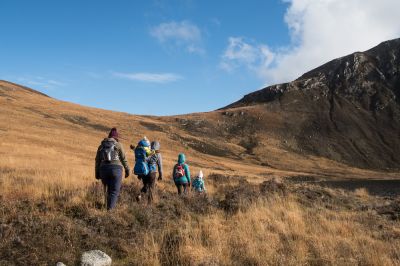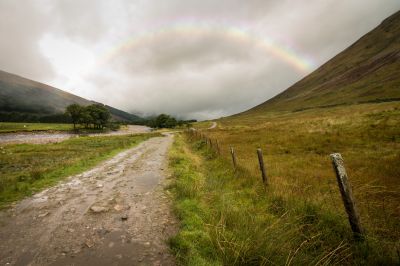Five things every beginner hiker should know
Some helpful advice from David Gray at besttentforyou.com
Getting into hiking can be one of the best decisions you make in your life. Perhaps you're looking to get fitter, join a club to meet new people or just to get to know the great British countryside a little better – whatever your motivation, it’s a great way to spend your time.
Choose the Right Gear
The right choice in clothing is most important. A lot of beginner hikers make the mistake of going on their first hike wearing a pair of jeans and a T-shirt. These are not appropriate clothes for a comfortable hike, because they will get heavy and chafe with the sweat.
Best are clothes that are made out of material that wick moisture, such as polyester and nylon. Even if it’s hot and sunny outside, long trousers and a long-sleeved shirt twill still help to protect you from the sun and insects and you can just roll them up if you’re hot.
Shoes are also very important for hiking. You don’t need to go out and get yourself some ultra expensive hiking boots, but do consider whether your ankles might need support. Don’t risk wearing any shoes that might cause blisters.
Next is the backpack. Choose one that is lightweight when empty, and that has an appropriate number of pockets for your needs.

What to Pack
A good rule of thumb is to pack the ten essentials. Even if you’re only going for a short walk, it’s still good to put into practice carrying the things every hiker could possibly need.
Plan for the unexpected. Always carry a map and compass, extra insulation clothing, illumination (a headtorch is best), first aid kit, a fire starter (a lighter, matches, etc.), hydration, nutrition, sun protection, some tools (such as a swiss army knife), and an emergency shelter. To start with, a compact emergency blanket is fine. Once you start going on longer and more remote hikes you will need to upgrade this.
Plan exactly what you’d like to eat, whether you’re going to snack as you walk or take a break to eat. You may want to snack as you go regardless if you have a planned break, and it doesn’t hurt to take a little extra.
Plan Ahead
Do a bit of research on the route you’d like to go. Make sure to start off on your adventures with something short and easy, and gradually increase the duration each time you go.
Be sure to check the forecast before you set off, so that you can wear the right clothing. Study the map before you go to check for any points on the route where you might need to consider a plan B should the weather deteriorate.
Make sure you're well hydrated before your hike, so that you don’t suffer for it if you don’t end up drinking enough while hiking.

Notify Someone
Whether you’re hiking solo or not, it’s always good to have someone else know about it. Remember what we said earlier, about planning for the unexpected.
Let someone know when and where you plan on going, and most importantly around when you estimate to be back home.
Don’t let this little precaution put you off hiking, it’s just a good habit to practice.

Leave No Trace
It is an unspoken rule that all hikers know; leave no trace behind. Anything you eat along the way that may have bits that need to be thrown, such as fruit peels or nutshells, don’t drop them on the ground.
Don’t disturb the environment either; be careful where you step and stay on the route - where you walk may be a working farm, nature reserve or 'Site of Special Scientific Interest' (SSSI) where care needs to be taken to avoid damage. Be considerate and respectful towards people you meet; avoid playing loud music for example.
This article is only about 5 things every beginner hiker should know, but if you would like a much more in-depth look you can check out this Hiking Beginners Guide. Also check out David's website besttentforyou.com for some good advice on buying a tent.
We welcome helpful articles from guest Bloggers. Get in touch if you'd like to contribute.
